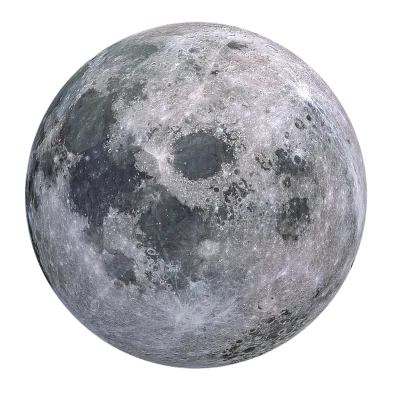Essay structure
Is a basic income scheme a good idea?
IntroductionGeneral statementsA basic income scheme is a proposal that the government should pay every citizen (whether rich or poor, working or unemployed) a regular sum of money sufficient for their basic needs. Thesis statementThe scheme would replace inadequate social security systems, eliminate the poverty trap, and make it easier for people to care for relatives or start businesses. Claims that the scheme would be too expensive or remove the incentive to work are disputed.

Body paragraphTopic sentenceSocial security systems that are supposed to cover the needs of people unable to support themselves—because of unemployment, illness or disability, for example—have various drawbacks. Supporting point 1Payments usually have to be applied for and as a result take-up can be low. For example, in the UK in 2019/20 up to 850 thousand families did not claim Pension Credit and up to 260 thousand pensioners did not claim Housing Benefit (Department for Work and Pensions, 2022). Not all potential claimants are aware of their rights and there may be stigma attached to certain benefits, such as food stamps. Supporting point 2The bureaucratic application process can be hard for some people, e.g. those who have physical disabilities or learning difficulties or who have to travel long distances to the government offices. Supporting point 3Furthermore, claimants have to prove that they are entitled to the payments. This is sometimes difficult, especially with unsympathetic assessors, such as Atos, the company that assessed claims for sickness benefits in the UK (Gentleman, 2011). Supporting point 4Lastly, a person’s circumstances may change suddenly, e.g. through illness, unemployment or the need to care for a relative (or a global pandemic), and social security payments may not be immediately available. Concluding sentenceIn conclusion, there are serious flaws in social security provision.
Body paragraphTopic sentenceA basic income would free people on low incomes from the poverty trap. Supporting point 1When someone obtains a job or a higher wage, they have to pay more income tax, while their means-tested social security benefits are cut.
Getting out of poverty is like getting out of a well; if you can’t jump up far enough you simply slide back to the bottom again.Supporting point 2A basic income would never be reduced or withdrawn, even if the recipient found well-paid employment. Concluding sentenceIn short, a person would not be penalized for trying to escape poverty.
(Piachaud, 1973, cited in ‘Poverty trap’, 2007)
Body paragraphTopic sentenceAnother major benefit of a basic income would be a more flexible approach to work. Supporting point 1People would be able to spend more time looking after children, sick relatives or aged parents. Supporting point 2The basic income would also provide a safety net for someone starting a small business.Concluding sentenceTo conclude, a basic income could improve the balance between working for a company and working for yourself.
Body paragraphTopic sentenceAlthough opponents contend a basic income scheme would be too expensive and make people lazy, these claims have been challenged. Supporting point 1Widerquist and Arndt (2020) calculate that a basic income of £7,706 for adults and £3,853 for children in the UK would cost around £67 billion per year or 3.4% of GDP, adding only 8.7% to total government spending. Supporting point 2In addition, Widerquist (2020) argues that critics tend to exaggerate the tax burden by quoting the gross cost instead of the net cost—i.e. the amount someone pays in taxes minus the amount they receive as basic income. Supporting point 3It is unclear what effect basic income would have on motivation to work. There are competing theories and very little empirical evidence. (See, for example, Gilbert et al. (2018) vs. Porter (2016)). On the one hand, people might choose to work fewer hours in unpleasant low-waged jobs; on the other, they could work extra hours without the penalty of losing benefits. Concluding sentenceThe case against basic income on grounds of cost and motivation has thus yet to be proved.
ConclusionSummary of main pointsTo summarize, a basic income scheme could close the gaps in the social safety net, help people escape the poverty trap and enable unpaid work. The cost of the scheme would be less burdensome than is sometimes claimed and its effect on motivation remains to be seen. Final commentFor these reasons, basic income schemes are being trialled in various jurisdictions (Samuel, 2020).
Reference list
Department for Work and Pensions (2022) Income-related benefits: estimates of take-up: financial year 2019 to 2020. Available at: https://www.gov.uk/government/statistics/income-related-benefits-estimates-of-take-up-financial-year-2019-to-2020 (Accessed: 11 May 2022).
Gentleman, A. (2011) ‘Benefits assessment firm causing “fear and loathing” among claimants, says MP’, The Guardian, 24 July. Available at: https://www.theguardian.com/politics/2011/jul/24/atos-faces-critical-report-by-mps (Accessed: 11 May 2022).
Gilbert, R. et al. (2018) ‘Would a basic income guarantee reduce the motivation to work? An analysis of labor responses in 16 trial programs’, Basic Income Studies, 13(2). Available at: https://doi.org/10.1515/bis-2018-0011.
Porter, E. (2016) ‘A universal basic income is a poor tool to fight poverty’, New York Times, 31 May. Available at: https://www.nytimes.com/2016/06/01/business/economy/universal-basic-income-poverty.html (Accessed: 11 May 2022).
‘Poverty trap’ (2007) in Spicker, P., Leguizamon, S. A. and Gordon, D. (eds) Poverty : an international glossary. 2nd ed. Available from: https://search.credoreference.com/content/entry/zedpoverty/poverty_trap/0 (Accessed: 10 May 2022).
Samuel, S. (2020) ‘Everywhere basic income has been tried, in one map’, Vox, 20 October. Available at: https://www.vox.com/future-perfect/2020/2/19/21112570/universal-basic-income-ubi-map (Accessed: 11 May 2022).
Widerquist, K. (2020) ‘Basic income could virtually eliminate poverty in the United Kingdom at a cost of £67 billion per year’, openDemocracy. Available from: https://www.opendemocracy.net/en/beyond-trafficking-and-slavery/basic-income-could-virtually-eliminate-poverty-in-the-united-kingdom-at-a-cost-of-67-billion-per-year/ (Accessed: 10 May 2022).
Widerquist, K. and Arndt, G. (2020) The cost of basic income in the United Kingdom : a microsimulation analysis. Available from: https://basicincome.org/wp-content/uploads/2020/07/Cost-of-BI-in-the-UK-A-Microsimulation-ForPosting.pdf (Accessed: 10 May 2022).
Should we be planning to colonize the Moon?
IntroductionGeneral statementsThe dinosaurs became extinct, according to the science fiction writer Larry Niven, because they did not have a space programme (Chaikin, 2001). The Earth may one day become similarly uninhabitable by humans, which raises the question of whether we should find other worlds to colonize. The nearest of these, a body that people have already succeeded in visiting, is the Moon. Thesis statementThe project would be extremely expensive and the money could be used for more pressing problems here on Earth. However, in the long term there are several reasons why humanity should colonize outer space, in particular the Moon, if certain obstacles can be overcome.

Body paragraphTopic sentenceThe colonization of other planets could provide not only extra living space for humanity (besides other species) but also protection in the event of a planetary catastrophe. Supporting point 1Our population is continuing to expand at an alarming rate, causing environmental degradation and scarcities in resources such as food, water and fuel. At some point we will have to restrict our population size and consumption patterns or find new lands to occupy. Supporting point 2Furthermore, there are various disasters that could threaten human survival on Earth, such as a global nuclear war, a pandemic, collision with an asteroid and severe climate change. Supporting point 3In the event of such a disaster an off-world colony could eventually recolonize the Earth. Concluding sentenceIn short, colonization of space would give us both extra room and a “backup” for human civilization.
Body paragraphTopic sentenceIn the search for suitable worlds to colonize, the main reason for choosing the Moon is its proximity, which brings several advantages. Supporting point 1First, the journey between the Earth and the Moon is short. It took the Apollo 11 astronauts only three days in 1969 and would probably take even less time now. This would be very convenient for moving people and supplies to the colony and back, particularly in an emergency. Supporting point 2Second, light and radio waves take only 1.3 seconds to reach the Moon from the Earth (NASA, 2000). This permits virtually normal conversation and means remote equipment can respond almost instantaneously. Supporting point 3Third, with its proximity and low gravity, a lunar colony would be an ideal training ground and “jumping off point” for expeditions to Mars and beyond. Concluding sentenceTo sum up, the closeness of the Moon is a major plus.
Body paragraphTopic sentenceAlthough there are certain difficulties that may make the Moon hard to colonize, all of these can be overcome. Supporting point 1The lunar nights are long—up to 334 hours in some places, according to Wittry (2007). While this would make it unwise to depend entirely on solar power, there are areas near the two poles which receive light nearly all of the time (Spudis, 2009), which could be suitable sites for solar panels. Supporting point 2Lack of water would pose problems, with a continuing demand for expensive water imports from the Earth as the lunar colony grew. However, in 2009 water ice was discovered in the permanently shadowed region of Cabeus crater near the south pole (NASA, 2009). Supporting point 3The absence of an atmosphere on the Moon results in temperature extremes and also leaves the surface exposed to radiation, meteors and moondust. Consequently, all structures would have to be built to resist these environmental hazards, perhaps from concrete or cast regolith. Regolith is the layer of loose and broken rock and dust on the Moon (Ridpath, 2018). Concluding sentenceAll of these obstacles, therefore, while posing serious difficulties for a new colony, are not insuperable.
ConclusionSummary of main pointsIn conclusion, it is vital for us to settle other worlds, starting with our nearest neighbour, once various difficulties have been solved. Final commentThe journey will be hard and costly, but by failing to undertake it we risk the extinction not just of the human species, like the dinosaurs before us, but of all life in the known universe.
Reference list
Chaikin, A. (2001) ‘Meeting of the minds: Buzz Aldrin visits Arthur C. Clarke’, Space.com. Available at: https://web.archive.org/web/20010305074947/http://www.space.com/peopleinterviews/aldrin_clarke_010227_2.html (Accessed: 17 February 2021).
NASA (2000) ‘“Seeing” the Earth, Moon, and Sun to scale’, Mathematical Thinking in Physics. Available at: https://www.grc.nasa.gov/WWW/K-12/Numbers/Math/Mathematical_Thinking/seeing_the_earth_moon.htm (Accessed: 17 February 2021).
NASA (2009) ‘LCROSS impact data indicates water on Moon’, LCROSS. Available at: https://www.nasa.gov/mission_pages/LCROSS/main/prelim_water_results.html (Accessed: 17 February 2021).
Ridpath, I. (2018) A dictionary of astronomy. 3rd edn. Oxford: Oxford University Press.
Spudis, P. (2009) ‘Back to the Moon’, Nature Geoscience, 2(4), pp. 234-236. Available at: https://doi.org/10.1038/ngeo481.
Wittry, J. (2007) ‘Lighting up the lunar night with fuel cells’, Beyond Earth. Available at: https://www.nasa.gov/exploration/home/lunar_fuel_cell.html (Accessed: 17 February 2021).
Glossary
- The introduction
- starts with some general statements, which are followed by the thesis statement.
- General statements
- introduce the general topic of the essay (e.g. colonization of outer space) and try to get the reader interested.
- The thesis statement
- states the specific thesis or main idea (e.g. why we should colonize the Moon). It may also list the subtopics (need for space colonies; why choose the Moon; difficulties to be overcome).
- A body paragraph
- consists of a topic sentence, some supporting points and a concluding sentence.
- A topic sentence
- expresses the main idea of the paragraph. It also tells the reader what information will follow in the rest of the paragraph.
- Supporting points
- expand the main idea that is contained in the topic sentence. They provide supporting evidence and examples.
- A concluding sentence
- signals the end of the paragraph with a phrase such as To sum up or therefore. It reminds the reader of the main idea in the paragraph. (It can basically be the same as the topic sentence, but in different words.)
- The conclusion
- indicates that the essay is about to end, with a phrase such as In conclusion. It reminds the reader of the main points and makes a final comment.